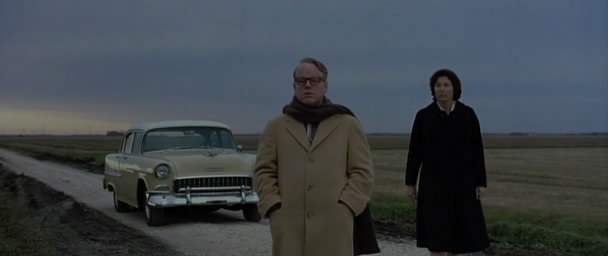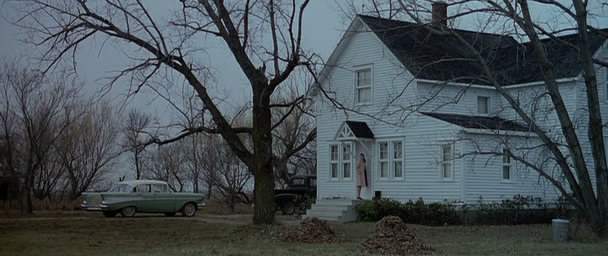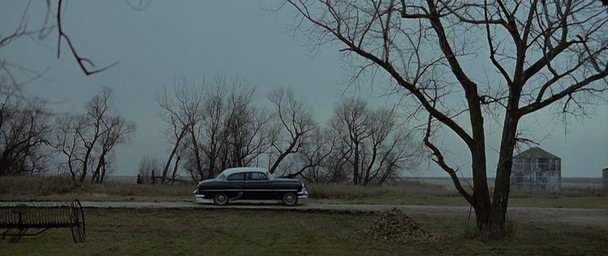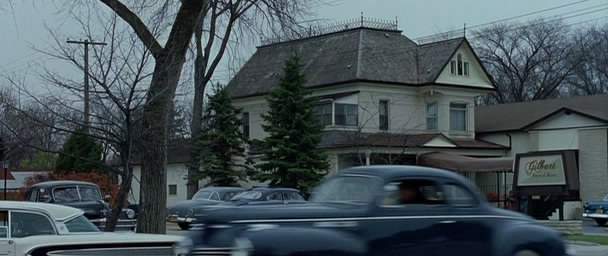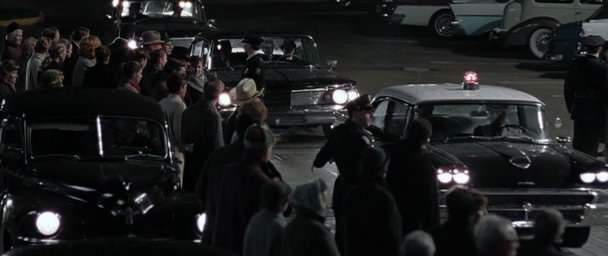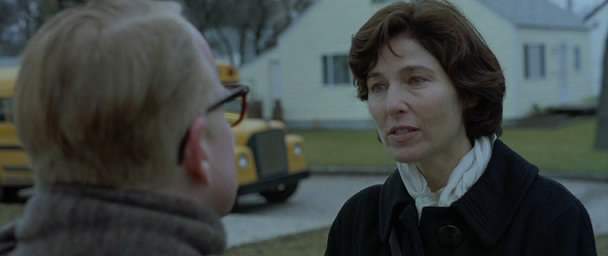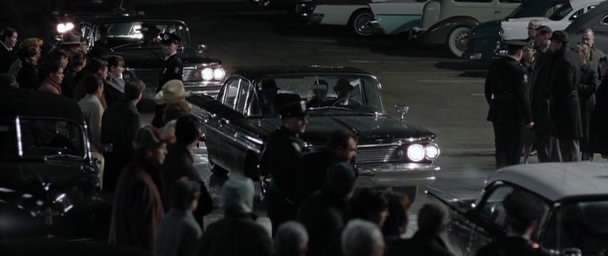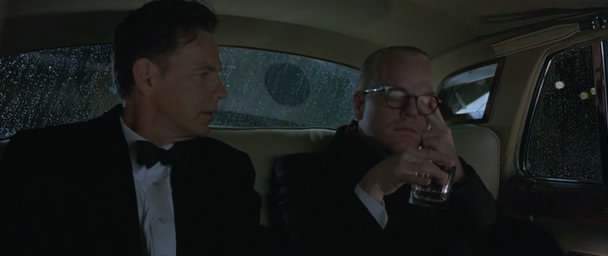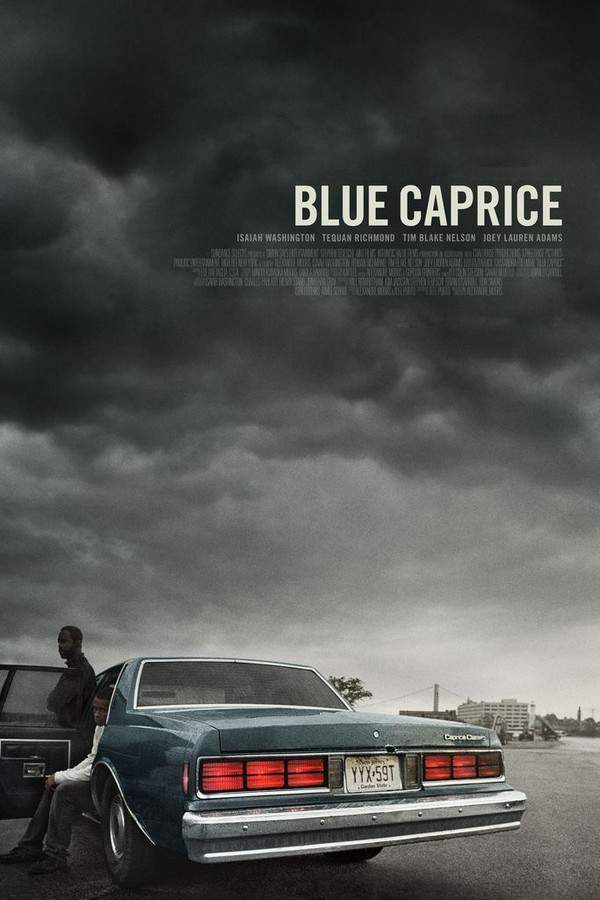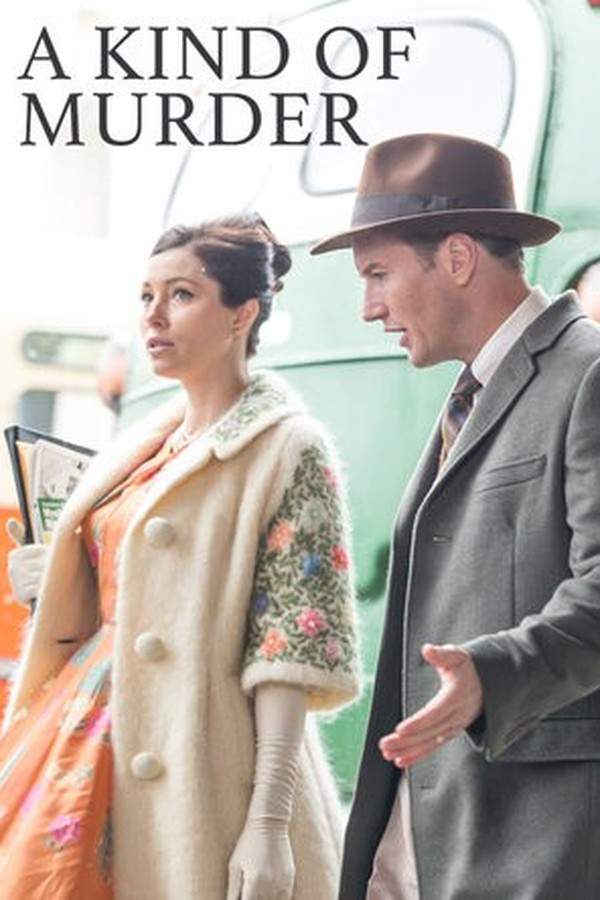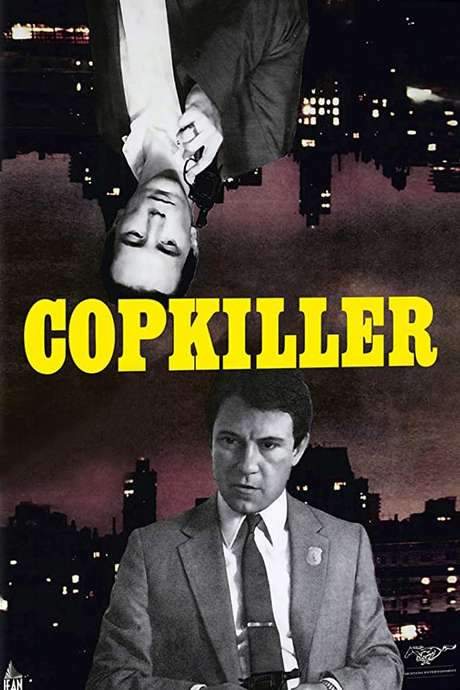Capote 2005
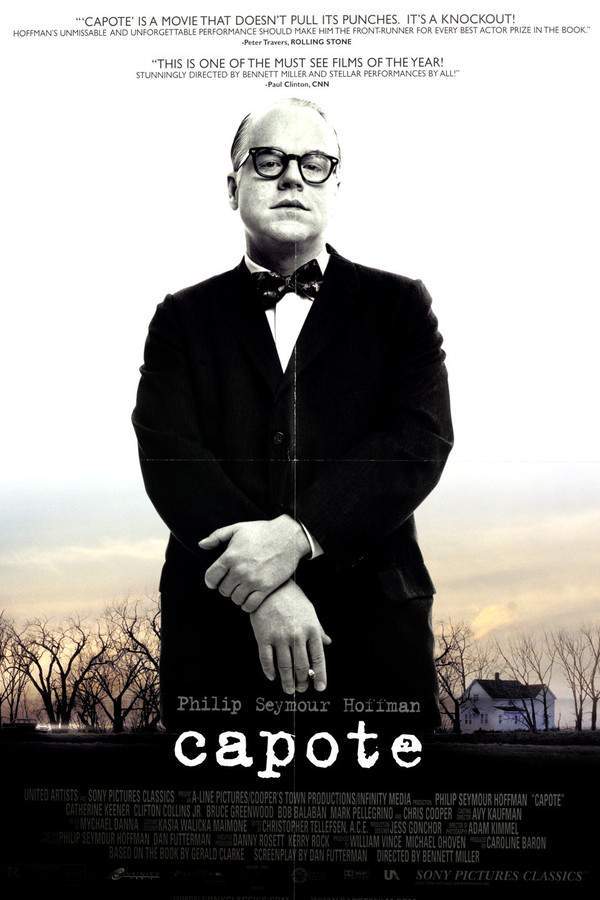
The acclaimed author Truman Capote becomes fascinated by the murder of a Kansas family and travels to the small town where it occurred. He develops a close, complicated relationship with Perry Smith, one of the accused killers, while investigating the crime and uncovering hidden truths about the community and its inhabitants. The experience profoundly impacts Capote, blurring the lines between reporting and personal involvement.
Does Capote have end credit scenes?
No!
Capote does not have end credit scenes. You can leave when the credits roll.
Meet the Full Cast and Actors of Capote
Explore the complete cast of Capote, including both lead and supporting actors. Learn who plays each character, discover their past roles and achievements, and find out what makes this ensemble cast stand out in the world of film and television.
External Links and Streaming Options
Discover where to watch Capote online, including streaming platforms, rental options, and official sources. Compare reviews, ratings, and in-depth movie information across sites like IMDb, TMDb, Wikipedia or Rotten Tomatoes.
Ratings and Reviews for Capote
See how Capote is rated across major platforms like IMDb, Metacritic, and TMDb. Compare audience scores and critic reviews to understand where Capote stands among top-rated movies in its genre.

88
Metascore
7.5
User Score


89%
TOMATOMETER

82%
User Score

7.3 /10
IMDb Rating

70
%
User Score
Take the Ultimate Capote Movie Quiz
Challenge your knowledge of Capote with this fun and interactive movie quiz. Test yourself on key plot points, iconic characters, hidden details, and memorable moments to see how well you really know the film.
Capote Movie Quiz: Test your knowledge about the intricate story of Truman Capote and his involvement in the true crime narrative of In Cold Blood.
What year does the gruesome crime in Kansas occur?
1956
1959
1962
1965
Show hint
Awards & Nominations for Capote
Discover all the awards and nominations received by Capote, from Oscars to film festival honors. Learn how Capote and its cast and crew have been recognized by critics and the industry alike.
78th Academy Awards 2006



Best Picture
Writing (Adapted Screenplay)
59th British Academy Film Awards 2006
Best Film



Best Adapted Screenplay
11th Critics' Choice Awards 2006
Best Picture


12th Annual Screen Actors Guild Awards 2006


Outstanding Performance by a Cast in a Motion Picture
58th Directors Guild of America Awards 2006

63rd Golden Globe Awards 2006
Best Performance in a Motion Picture – Drama (Actor)
21st Film Independent Spirit Awards 2006
Best Feature

Best Screenplay
Best Cinematography
Full Plot Summary and Ending Explained for Capote
Read the complete plot summary of Capote, including all major events, twists, and the full ending explained in detail. Explore key characters, themes, hidden meanings, and everything you need to understand the story from beginning to end.
In 1959, the shocking discovery of the four lifeless bodies of the Clutter family on their Kansas farm sends ripples through the nation. As he reads about this tragic event in The New York Times, Truman Capote, played by Philip Seymour Hoffman, becomes deeply fascinated and immediately contacts the editor of The New Yorker, William Shawn (portrayed by Bob Balaban), revealing his intention to document this harrowing story.
Capote makes his way to Kansas and invites his childhood friend, Nelle Harper Lee, to accompany him. His goal is to gather insights from individuals associated with the Clutter family, with Lee acting as his intermediary. Although Alvin Dewey (played by Chris Cooper), the lead detective from the Kansas Bureau of Investigation, initially dismisses Capote’s requests, his wife, Marie (Amy Ryan), who admires Capote’s literary work, convinces her husband to invite the pair over for dinner.
During their dinner gathering in January 1960, as Capote shares captivating stories about glamorous movie sets and Hollywood icons, he gradually wins over Dewey. This leads to a unique opportunity where Capote gets to lay eyes on photographs of the deceased victims. The mood shifts abruptly when murder suspects Perry Smith (Clifton Collins Jr.) and Richard “Dick” Hickock (Mark Pellegrino) are apprehended. Through a combination of charm, persuasion, and a keen understanding of human emotions, Capote successfully secures visits to the prison where the suspects are held.
While uncovering the details surrounding the case, Capote discovers that both Smith and Hickock had waived their rights to a preliminary hearing, believing it might “curry favor with the judge.” As he interacts more with Smith, he begins to forge an unexpected emotional bond with him. Capote shares his ambition to transform the articles into a full-length book with Shawn, despite the ambiguous legal proceedings taking place.
As the trial concludes and both suspects receive death sentences, Capote’s access to them continues, buoyed by his dubious generosity inviting Warden Marshall Krutch (Marshall Bell) to benefit from more privileged visits. Particularly attentive to Smith, who has fallen into a state of despair, Capote takes it upon himself to bring comfort, including feeding him baby food to restore his health.
Over subsequent visits, amidst his literary endeavors which include a year away in Morocco and Spain with his partner Jack Dunphy (Bruce Greenwood), Capote delves deeply into Smith’s turbulent past, reflecting on the conflicting emotions stirred by the gruesome circumstances. Flawed as it may be, Capote’s pursuit to grant Smith and Hickock better legal representation results in protracted appeals, ultimately frustrating him as he finds it increasingly challenging to obtain the definitive account of the night of the murders from Smith.
Tensions escalate as Dewey expresses his anger and threatens repercussions, but the real strain manifests when Smith questions Capote, who evades the inquiry about revealing his book to him. Feeling increasingly ensnared by a narrative without closure, Capote realizes he cannot complete his book until the legal proceedings are resolved. After much deliberation, Smith finally recounts the horrifying events leading to the deaths of the Clutter family, yet in this moment of clarity, Capote grapples with his moral dilemma, withdrawing legal support and leaving the men to face the court alone.
With his narrative now within grasp, Capote remains ensnared, tied to an unresolved legal battle, preventing him from publishing his much-anticipated account. Meanwhile, Lee’s acclaimed novel, To Kill a Mockingbird, garners massive success as it leaps to the silver screen, a triumph that brings Capote no joy as he spirals into his personal demons fueled by alcohol.
As their final appeal is struck down, Smith fervently implores Capote for a last visit prior to his scheduled execution on April 14th, 1965. Overcome with guilt, Capote hesitates but is ultimately compelled by a moving telegram from Smith directed to Lee, leading him back to Kansas, where he becomes an unwilling participant as Smith and Hickock face their grim fate.
Upon returning, Capote confides in Lee about the harrowing ordeal and expresses profound regret over his inability to intervene. She notably responds, “Maybe not. The fact is you didn’t want to.” In the concluding scenes, Capote reflects over photographs and remnants of the case, laying bare the complexity of his journey. The epilogue reveals that while In Cold Blood catapulted Capote to unprecedented fame as America’s preeminent writer, he subsequently struggled to replicate his earlier success, eventually succumbing to alcoholism in 1984.
Uncover the Details: Timeline, Characters, Themes, and Beyond!

Coming soon on iOS and Android
The Plot Explained Mobile App
From blockbusters to hidden gems — dive into movie stories anytime, anywhere. Save your favorites, discover plots faster, and never miss a twist again.
Sign up to be the first to know when we launch. Your email stays private — always.
Watch Trailers, Clips & Behind-the-Scenes for Capote
Watch official trailers, exclusive clips, cast interviews, and behind-the-scenes footage from Capote. Dive deeper into the making of the film, its standout moments, and key production insights.
Cars Featured in Capote
Explore all cars featured in Capote, including their makes, models, scenes they appear in, and their significance to the plot. A must-read for car enthusiasts and movie buffs alike.
Capote Themes and Keywords
Discover the central themes, ideas, and keywords that define the movie’s story, tone, and message. Analyze the film’s deeper meanings, genre influences, and recurring concepts.
Capote Other Names and Titles
Explore the various alternative titles, translations, and other names used for Capote across different regions and languages. Understand how the film is marketed and recognized worldwide.
Articles, Reviews & Explainers About Capote
Stay updated on Capote with in-depth articles, critical reviews, and ending explainers. Explore hidden meanings, major themes, and expert insights into the film’s story and impact.
Similar Movies To Capote You Should Know About
Browse a curated list of movies similar in genre, tone, characters, or story structure. Discover new titles like the one you're watching, perfect for fans of related plots, vibes, or cinematic styles.
Quick Links: Summary, Cast, Ratings, More

What's After the Movie?
Not sure whether to stay after the credits? Find out!
Explore Our Movie Platform
New Movie Releases (2025)
Famous Movie Actors
Top Film Production Studios
Movie Plot Summaries & Endings
Major Movie Awards & Winners
Best Concert Films & Music Documentaries
Movie Collections and Curated Lists
© 2025 What's After the Movie. All rights reserved.














